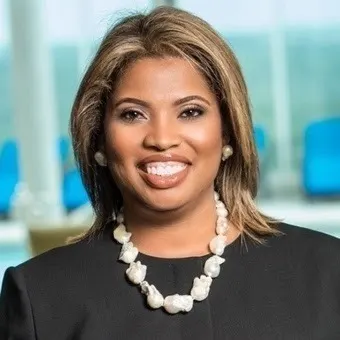How Black women raised me to embrace my differences
For Women’s History Month, I think of the dynamic women who influenced my life and my worldview. To be honest, I don’t have to look very far.
I was raised in a space where influential, empowering women were in great abundance. In my world, it was very much the norm as a woman, and as a Black woman, to engage in real conversations about glass ceilings and to watch people crack them.
My grandmothers, my mother, aunts, and their friends were all groundbreakers. They were the first of firsts – the first Black volunteer with the Pink Ladies at the local hospital in south Georgia, first Black female full professor at the tier-one research institution, author of the first anthology about Black feminists, first Black woman licensed as a psychometrist in the state… I could go on and on, but you get the drift. When I was growing up, being first was normal, and expected.
Being first often means being different, and when you’re different, you’re visible. As a Black woman, I know what it’s like to be visible. I navigate that pretty much every day. You have to be able to navigate the cost of visibility to thrive. Being visible requires confidence and a clear sense of who you are.
Growing up, I had a village of Black women, led by my mother, who went to great lengths to create a space where that confidence was normal. For example, in the late seventies Black Barbie’s were not widely sold in the South. But my mother was not going to give me Barbie’s Black friend because Blackness wasn’t a sidekick. If Blackness wasn't central, I didn't have it. I had Black history comic books, a Black Raggedy Ann that was as tall as I was, and two Black Cabbage Patch dolls that were made especially for me. When my white classmates tore the legs off of my Black Santa Claus at school, I simply made a new one. I was not deterred. I was always clear that Black was in fact beautiful.
I also remember very clearly telling my first-grade teacher that she was a feminist. This did not go over well. I was insistent that if you are a woman, clearly you support other women, and that's what my 5-year-old-self thought that feminism was. I thought all women were feminists. It was ingrained in me.
No matter the space, hostile or friendly, I did not contort myself to fit in, nor was I encouraged to do so. As a child, I thought this was normal. Looking back on it now, I can see that it was truly intentional. My mother and my village created these spaces and opportunities on purpose. They went to great lengths to make sure that I thrived regardless of the environment, and that I did not question who or what I was. They did not shelter me from reality, they prepared me to excel in spite of it.
Everyone has their own journey, but for me, I’m very much the product of a group of exceptionally strong, independent Black women. As a Black woman in white spaces you can be treated as though you are invisible — not just because of your gender, but also because of your race. These challenges are intertwined. Navigating these realities requires a toughness and a confidence in who you are and your value, which not everyone can easily develop.
Many parts of my journey mirror the experiences of the 1 in 5 people in the U.S. with learning and thinking differences, who we serve at my organization Understood. These individuals often have to navigate environments where their differences are seen as weaknesses, not strengths. Many people who learn and think differently struggle to graduate from high school, find jobs, and are likely to encounter the criminal justice system. When you layer on identities like being a woman or a member of the Black community, or both, these individuals face even greater barriers to being seen, understood, and admired.
As we celebrate Women’s History Month, I am grateful for the women who literally paved the road I walk on. I’m grateful that, because of them, I can be fully seen in the world. My hope, and part of my job, is to help more people be “seen” and embrace their differences like I was taught to. When we embrace differences, everyone thrives.
